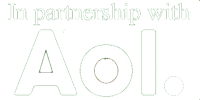New Editor Applications
Proper screening of new editor applicants is critical in keeping a clean and consistent directory. DMOZ seeks honest and ethical editors who will embrace the project's overall spirit, and edit as a contribution to the greater Web searching community.
There are no strict guidelines, checklists or magic formulas used to evaluate new applications. Each applicant should be evaluated on his/her individual merit and unique qualities and circumstances. However, here some key points to remember, as well as advice routinely given to people who ask about the editor application process. Keep in mind, these are not hard and fast guidelines or checklists.
Key, Big Picture Points to Remember
- DMOZ's quality is primarily determined by the sites to which it links, not the quality of the annotations. It is essential that an applicant supply, quality listable URLs, but it's not as important that s/he supply letter perfect titles and descriptions.
- It is in the DMOZ's best interest to accept people who will edit in the spirit of the directory's all inclusive, non-commercial, Open Source inspired mission. Avoid accepting editors who appear only interested in promoting, marketing or optimizing their own sites and interests. Commercial self-interest and website promotion have no place in DMOZ.
- Evaluate an application as an answer to the question "What kind of editor will you be?" and respond accordingly. You want to accept trustworthy people who won't require constant oversight.
Good applications tend to include:
- Complete and coherent information.
- Full disclosure of all affiliations.
- An honest representation of the person behind the user name. Be mindful that bad/abusive editors who have been removed from the directory will attempt to sneak back in under assumed names. You should not accept removed editors.
- An explanation of the individual's interests and experiences in the particular subject area. Evaluate the application on the individual's merits and unique qualities. You should avoid accepting editors who are more concerned with promoting/marketing their own sites than the project's stated mission.
- Two or three Sample URLs that meet DMOZ's guidelines for inclusion.
- Sample URLs that are directly relevant to, and listable in the category to which the individual applied to edit. Ask yourself if you would list these URLs.
- Sample URLs that point to websites written in the category's language.
- Sample URLs with reasonably well written titles and descriptions, free of spelling grammatical mistakes. We don't expect new applicants to be familiar with style guideline experts. However, we don't want people to think editing is the same as writing advertising copy.
Poor applications tend to have one or more of the following qualities:
- Incomplete and/or incoherent information (e.g., insufficient information has been provided in some fields including reason, affiliation and/or Sample URLs).
- Affiliations were not properly or fully disclosed.
- Dishonest representation of the person behind the user name. The individual is a known scammer, spammer, abuser, or removed editor who is trying to get back in under a false identity.
- Poor spelling and grammar.
- One Sample URL instead of 2 or 3.
- Sample URLs that don't work or are of poor quality.
- Sample URLs that are too broad or totally irrelevant to the category.
- Sample URLs that are not in the category's language.
- Sample URLs with poorly written titles and descriptions. For example, descriptions that are nothing more than strings of keywords, or containing overly hyped and highly promotional keywords and phrases. Remember, the Web community expects DMOZ editors to be fair, objective, and unbiased in their listing decisions.
- Self Promotion. The candidate appears mainly interested in promoting his/her own sites or those with which s/he is affiliated. DMOZ is not a marketing tool, and becoming an editor should not be used to circumvent the site submission process.
New Category Permissions
New permissions are handled a little differently than new applications, although the same basic guidelines apply. Be judicious about who you approve for new permissions. Remember, you want to accept good, trustworthy editors to new categories. Avoid accepting poor or improving editors to new categories as way to motivate them to do better.
New permission requests should be evaluated in accordance with the advice given in Applying for New Categories: Advice and Guidance.
